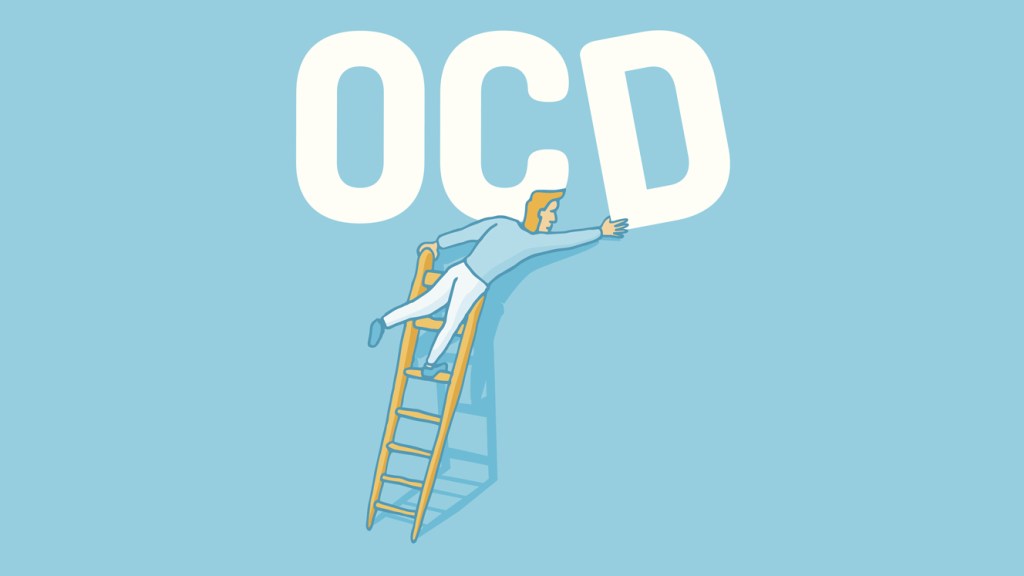There are many myths that you need to stop believing about Obsessive-compulsive disorder (OCD). Here are few facts that you need to know about OCD instead of blindly following the myths.
Myth #1: Everyone has a little OCD
This is one of the most commonly used expressions that we often hear from almost everyone nowadays. It becomes important to understand the depth of this statement because this statement is not only false but is actually harmful to those who suffer from OCD. Many people believe that Obsessive-Compulsive Disorder (OCD) is just about being obsessive or compulsive about a particular thing, but this is not the case as these personality traits, thoughts, or behaviours are very different from the psychological disorder of OCD.
Obsessive-compulsive disorder (OCD) is a chronic anxiety disorder where a person experiences unreasonable, uncontrollable, or recurring thoughts that are followed by some particular behavioural response. The disorder causes obsessions over repeated thoughts, urges, or mental images that lead to anxiety. While compulsions are repetitive behaviours that a person with OCD feels the urge to do in response to an obsessive thought.
It is believed that one in 100 people meet the criteria for OCD. Saying, “that’s so OCD,” or something similar about a behaviour, thought, or trait that does not actually occur as part of OCD is hurtful to people who have the disorder because it minimises their suffering and makes a joke about something that is very serious.
Myth #2: All people with OCD are just neat freaks and are obsessed with cleaning
Many people with OCD have fears of contamination. They may worry about getting sick or exposing themselves to germs. Not all people with OCD have obsessions about cleanliness. According to research from 2010 found that cleaning is not the most common symptom of OCD. Compulsive hand-washing is just one of the many types of OCD.
Usually, people suffering from OCD have compulsion directly relates to the obsession, such as hand-washing to neutralize the fear of getting sick, but sometimes it does not. OCD is a heterogeneous disorder. In other words, it manifests differently in different people. In fact, only a portion of individuals with OCD are afraid of germs or have compulsions related to keeping themselves clean.
Myth #3: People with OCD are picky and controlling
It is important to note that OCD is a mental health condition and not a personality trait. Many people feel that if people with OCD understand their actions aren’t rational, they’ll stop doing the compulsions. But this is not true as in most cases people with OCD know that what they are thinking and doing is irrational but still there isn’t anything they can really do about it.
Feeling compelled to engage in compulsions even though a person knows that what they are thinking is irrational can be one of the most frustrating aspects of having OCD. People with OCD struggle to control their own thoughts and emotions. People with OCD have a wide range of personalities. Some are stubborn and controlling with others. While other people with OCD are easy-going around others and strict only with themselves.
Myth #4: People with OCD are dangerous and weird
This is one of the most common stigmas associated with OCD than other mental health disorders like anxiety or depression. People with OCD often have intrusive thoughts that appear seemingly without cause. Sometimes, these thoughts are about a forbidden act. People with OCD often are guilty of having these thoughts. Even if they have no intention of doing these actions, they may worry about “losing control.”
People with OCD are just like any other person, they just have a mental disorder similar to an anxiety disorder. OCD sufferers are not psychotic and they are completely in touch with reality.
Myth #5: People suffering from OCD can never live a normal life
It’s true that people with OCD probably won’t get better on their own and have to take proper medication for it. Yet it is important to remember that there are many treatments that can help the sufferers with both obsessions and compulsions. There is no 100 percent cure for OCD, but many people are able to live symptom-free for long periods of time. So, it’s common to still have occasional obsessions pop up, but they will occur much less often and be much less intense.
Myth #6: Taking a relaxing vacation may cure OCD
OCD is a serious condition with a neurobiological cause and is nothing to do with vacations. Although it is true that too little stimulation in a person’s day suffering from OCD can cause to spike the symptoms, but going on the vacations is not the option for its treatment.
It is rightly said that vacations (as fun as they can be) just throw off a regular routine of daily activities but still after resuming to the normal routine may result in the gain of the symptoms again.
Myth #7: OCD is caused by a troubled childhood
Many people with mental illnesses have a history of trauma. However, it is essential to point out that trauma does not inherently cause OCD. Experts have not identified a single or exact cause of OCD. Like most mental illnesses, the symptoms and risk factors appear to be multifaceted. OCD is a complex diagnosis with many potential causes.
Myth #8: OCD is cute, probably helpful
The stereotypical portrait of OCD presents someone who is tidy and organised. But presenting OCD in this way and characterising it as a funny trait or even a desirable characteristic ignores the dark reality of the disorder for people who are actually suffering from it. It is crucial to be sympathetic towards people who are the sufferers as the disease robs hours from a person’s day as they spend their time doing useless compulsions.

